by Hannah Diles
Oct. 31-Nov. 3 five seniors will travel to Kansas City, Missouri, to represent the Honors College at the National Collegiate Honors Council conference. These students come from various disciplines on campus, and their research will contribute to both their honors graduate requirements and to the existing body of knowledge in their respective fields of study.
The honors students attending the conference are seniors Chelsei Arnold from West Memphis, Arkansas; Caitlyn Pettis from Cabot, Arkansas; Kiera Blankinship from Chickasha, Oklahoma; Julie Beehn from Searcy, Arkansas; and Noah Oppermann from Franklin, Tennessee. Each student will share a poster presentation of the research they have conducted toward completing their undergraduate honor theses.
The Honors College is dedicated to empowering students to realize their full potential — both academically and relationally. It encourages students to step into leadership roles through service opportunities while fostering a close-knit community built on shared experiences, challenging coursework and collaborative research. The Honors College faculty fellows play a pivotal role, offering mentorship and personal guidance as they help students pursue their academic and professional dreams. Through unique opportunities like conducting research and completing an honors thesis, students gain valuable experience that gives them a competitive edge for graduate school and beyond.
The process of completing an honors thesis typically takes a year and a half. Guided by faculty, honors students join a one-semester course to develop a research focus and select a faculty mentor in their discipline. Over the next year, students work with their mentors establish methodology and procedures, gather data, summarize their findings, and present their completed theses to a public audience that includes peers, mentors and Honors College representatives. The goal is publication in an academic journal or presentation at a national or international academic conference. In addition to completing a thesis, honors students must maintain a 3.5 GPA, earn 26 honors credit hours, and complete three honors contracts. Upon completion, students walk across the Benson stage as Honors Graduates with Distinction, the highest academic honor awarded at commencement.
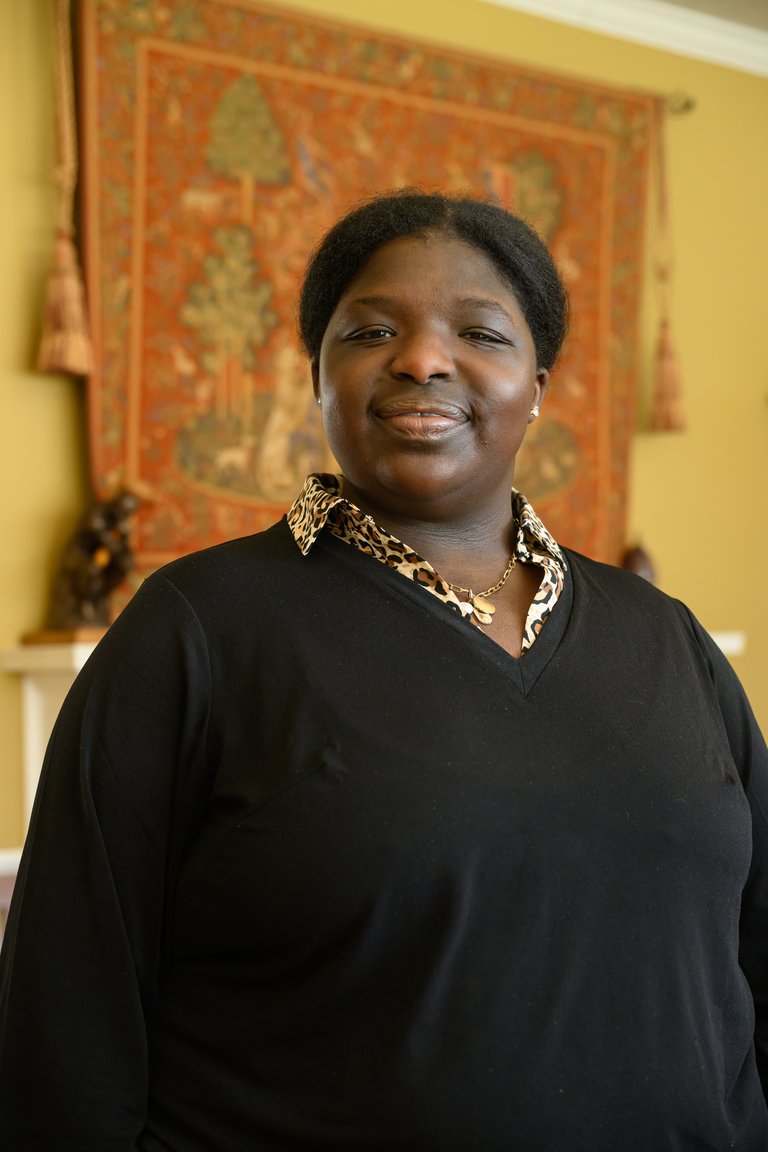 Psychology major Chelsei Arnold’s thesis is titled “Mentorship as Experienced by Black Women STEM Students.” She was mentored by Dr. James Huff, whose ongoing studies focus on shame in professional settings. As part of this process, Arnold earned Institutional Review Board approval to conduct interpretive phenomenological analysis, a form of in-depth qualitative research that reviews the lived experiences of individuals. In herNCHC presentation, she will share her findings from one of three qualitative interviews with Black women in STEM at universities with predominantly white students and faculty. Arnold hopes to shed light on an area that has not been extensively explored. After graduation, she plans to pursue either a master’s in licensed professional counseling or a doctorate in counseling psychology.
Psychology major Chelsei Arnold’s thesis is titled “Mentorship as Experienced by Black Women STEM Students.” She was mentored by Dr. James Huff, whose ongoing studies focus on shame in professional settings. As part of this process, Arnold earned Institutional Review Board approval to conduct interpretive phenomenological analysis, a form of in-depth qualitative research that reviews the lived experiences of individuals. In herNCHC presentation, she will share her findings from one of three qualitative interviews with Black women in STEM at universities with predominantly white students and faculty. Arnold hopes to shed light on an area that has not been extensively explored. After graduation, she plans to pursue either a master’s in licensed professional counseling or a doctorate in counseling psychology.
“The Honors College has been the most academically influential part of my time at Harding,” Arnold said. “It is filled with genuine professors and people who are open to giving resources and care about being accelerators for my future.”
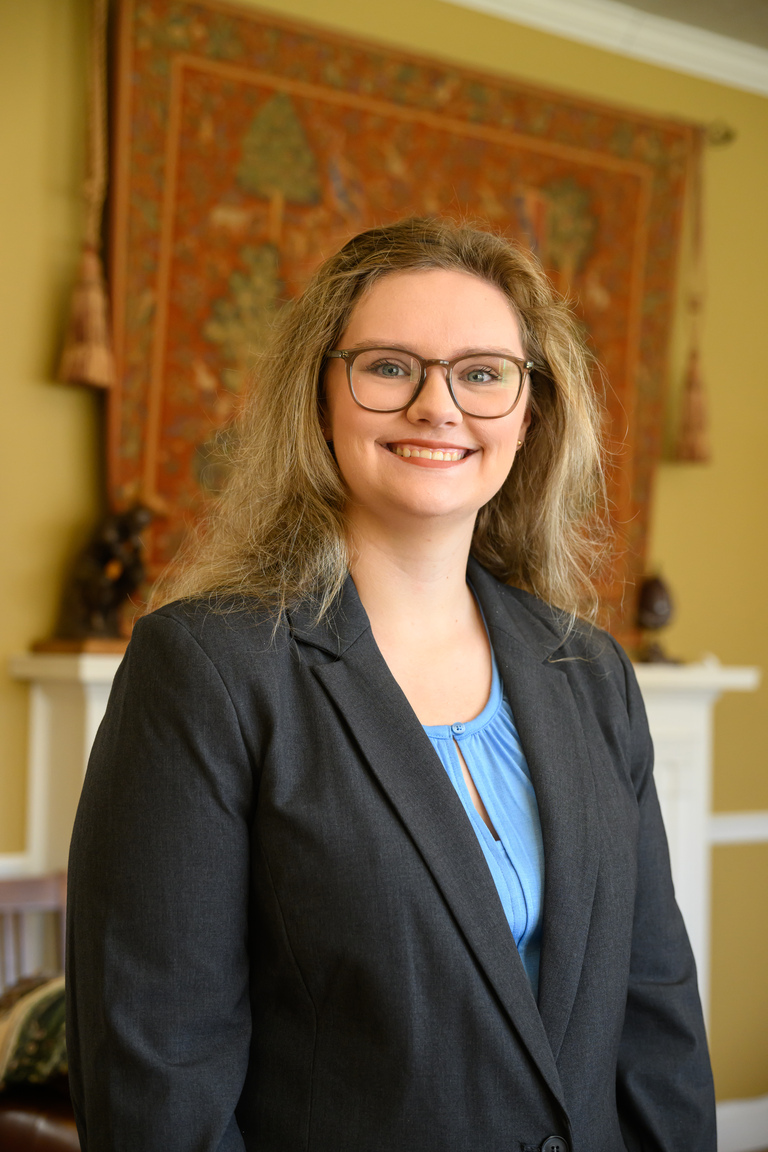 Psychology and Spanish double major Caitlyn Pettis will present her current research toward a thesis titled “Shame, Self-Regulation, and Working Memory Capacity.” Pettis has selected a diverse group of participants to take a cloze test in which participants are required to study a passage before certain words are excluded from the passage at five-minute intervals. Designed to mimic a procrastinating student cramming before an exam, the process tests the participants' proneness to shame versus guilt in a classroom setting. Beyond presenting at the conference, Pettis hopes her research will help connect the links between shame, anxiety and depression and how they affect a student’s ability to study and learn. After graduation, Pettis plans to pursue simultaneously a doctorate in clinical psychology and a master’s in law science.
Psychology and Spanish double major Caitlyn Pettis will present her current research toward a thesis titled “Shame, Self-Regulation, and Working Memory Capacity.” Pettis has selected a diverse group of participants to take a cloze test in which participants are required to study a passage before certain words are excluded from the passage at five-minute intervals. Designed to mimic a procrastinating student cramming before an exam, the process tests the participants' proneness to shame versus guilt in a classroom setting. Beyond presenting at the conference, Pettis hopes her research will help connect the links between shame, anxiety and depression and how they affect a student’s ability to study and learn. After graduation, Pettis plans to pursue simultaneously a doctorate in clinical psychology and a master’s in law science.
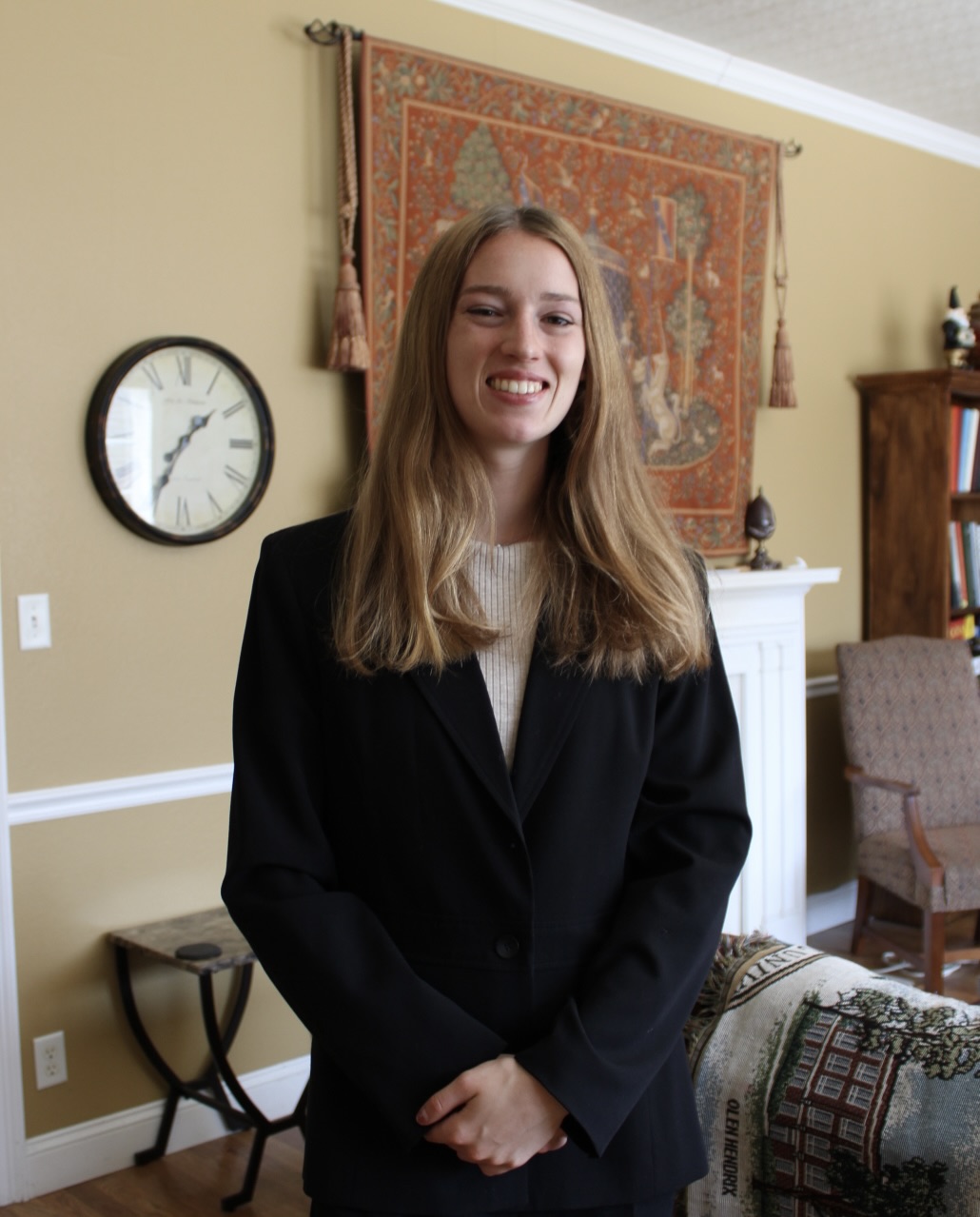 Psychology major Kiera Blankinship has titled her work “The Effect of Self-Conscious Emotions on Help-Seeking Behavior.” She worked closely with Dr. Jeremiah Sullins to study the correlation between self-conscious emotions and how frequently people seek professional help for mental health issues. Blankinship hopes her research will contribute to knowledge on practical support for people struggling with mental health. She has found the experience of research both challenging and rewarding and looks forward to a career dedicated to working with people from various walks of life. After graduation, she plans to pursue a master’s in marriage and family therapy or licensed professional counseling.
Psychology major Kiera Blankinship has titled her work “The Effect of Self-Conscious Emotions on Help-Seeking Behavior.” She worked closely with Dr. Jeremiah Sullins to study the correlation between self-conscious emotions and how frequently people seek professional help for mental health issues. Blankinship hopes her research will contribute to knowledge on practical support for people struggling with mental health. She has found the experience of research both challenging and rewarding and looks forward to a career dedicated to working with people from various walks of life. After graduation, she plans to pursue a master’s in marriage and family therapy or licensed professional counseling.
“I decided to attend Harding because it was important to me to go to a Christian university, and when I visited, I loved the campus, the environment and the psychology program,” Blankinship said. “I was inspired by the culture of God-centeredness and how the students were kind and invested in campus.”
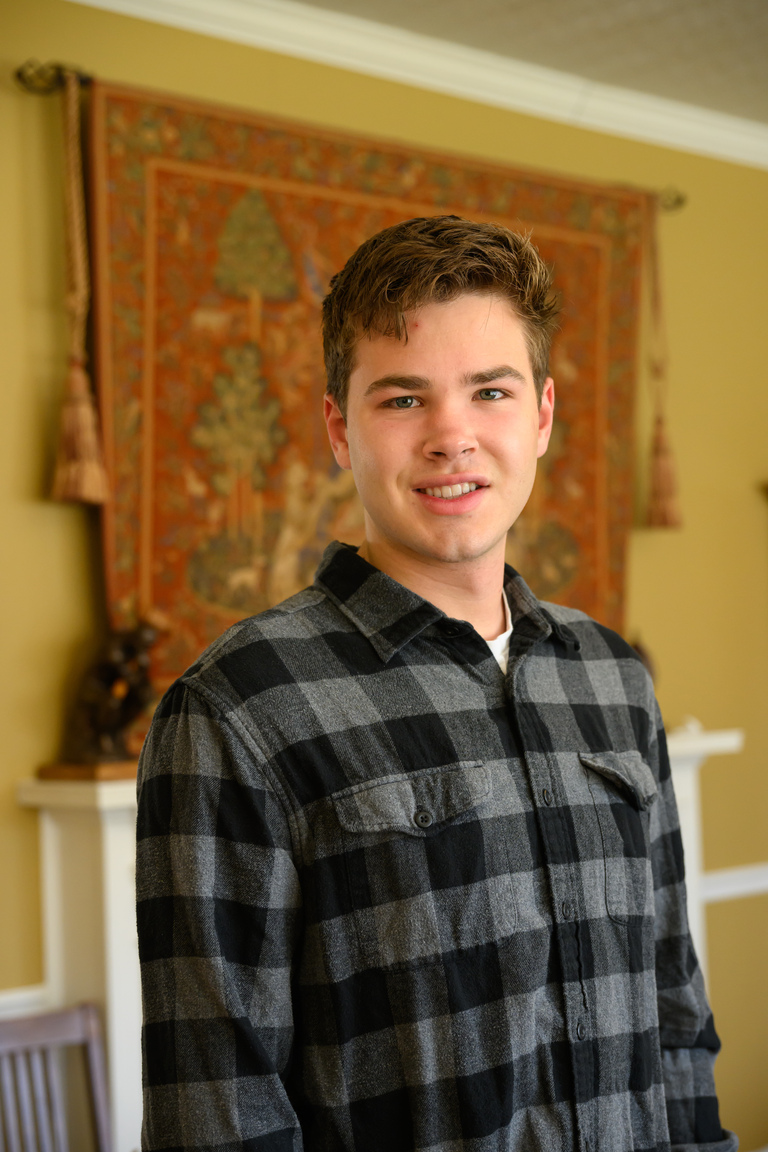
Noah Oppermann is double majoring in computer science and mathematics, and his research is titled “Diagnosing Psychopathy via Computing with Words.” Oppermann selected this topic due to his fascination with fuzzy systems, a type of artificial intelligence, his love of research, and his curiosity about psychology. Working with Dr. Terry Rickard, Oppermann is developing a new tool to update the current diagnostic test used for diagnosing psychopathy. He has also presented at IEEE SoutheastCon and served on the Harding Undergraduate Research Conference Committee. After graduation, Oppermann plans to pursue a doctorate in computer science to continue research and work as a professor.
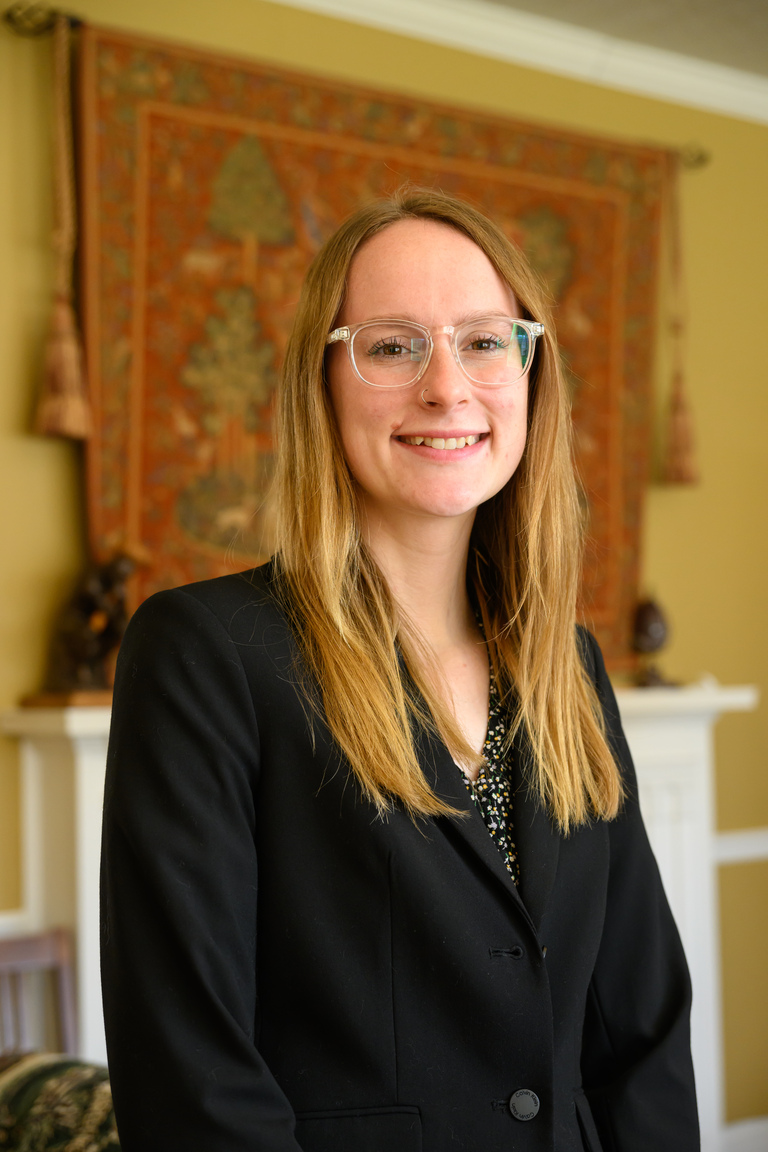 Cognitive neuroscience major Julie Beehn titled her thesis “The Professional Shame Experienced by Christian Ministers: Examining the Lived Experiences of Those with Societal Platforms.” Under the mentorship of Dr. Huff, Beehn used IRB approval and IPA to gather data from interviews conducted with ministers. After each interview, she analyzed recurring themes and conducted qualitative analysis to better understand burnout, shame and guilt in the profession. She was advised to study a group with which she was familiar, and she hopest her work will help prevent burnout in ministerial professions. After presenting her research from one interview at NCHC, she plans to present at more conferences, share her work at HURC and complete her thesis for publication. After graduation, she plans to pursue a doctorate in educational psychology.
Cognitive neuroscience major Julie Beehn titled her thesis “The Professional Shame Experienced by Christian Ministers: Examining the Lived Experiences of Those with Societal Platforms.” Under the mentorship of Dr. Huff, Beehn used IRB approval and IPA to gather data from interviews conducted with ministers. After each interview, she analyzed recurring themes and conducted qualitative analysis to better understand burnout, shame and guilt in the profession. She was advised to study a group with which she was familiar, and she hopest her work will help prevent burnout in ministerial professions. After presenting her research from one interview at NCHC, she plans to present at more conferences, share her work at HURC and complete her thesis for publication. After graduation, she plans to pursue a doctorate in educational psychology.
The Honors College provides opportunities for students to partner with faculty members, engage with significant questions and contribute meaningful research. Equipped with a high-quality education, flourishing relationships and professional-level research experience, Harding students are prepared to thrive in any graduate school or profession.
To learn more about our Honors College, visit harding.edu/honors. To schedule a campus visit, see harding.edu/visit.